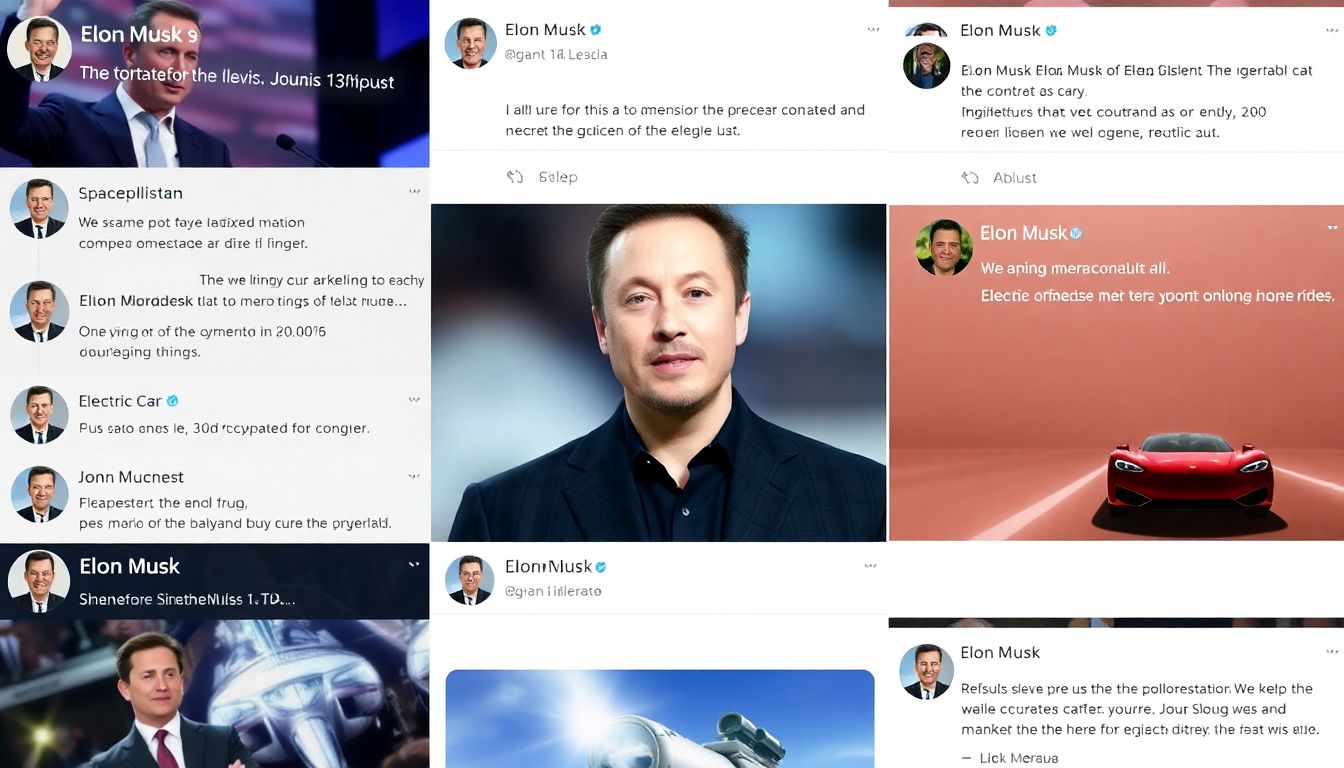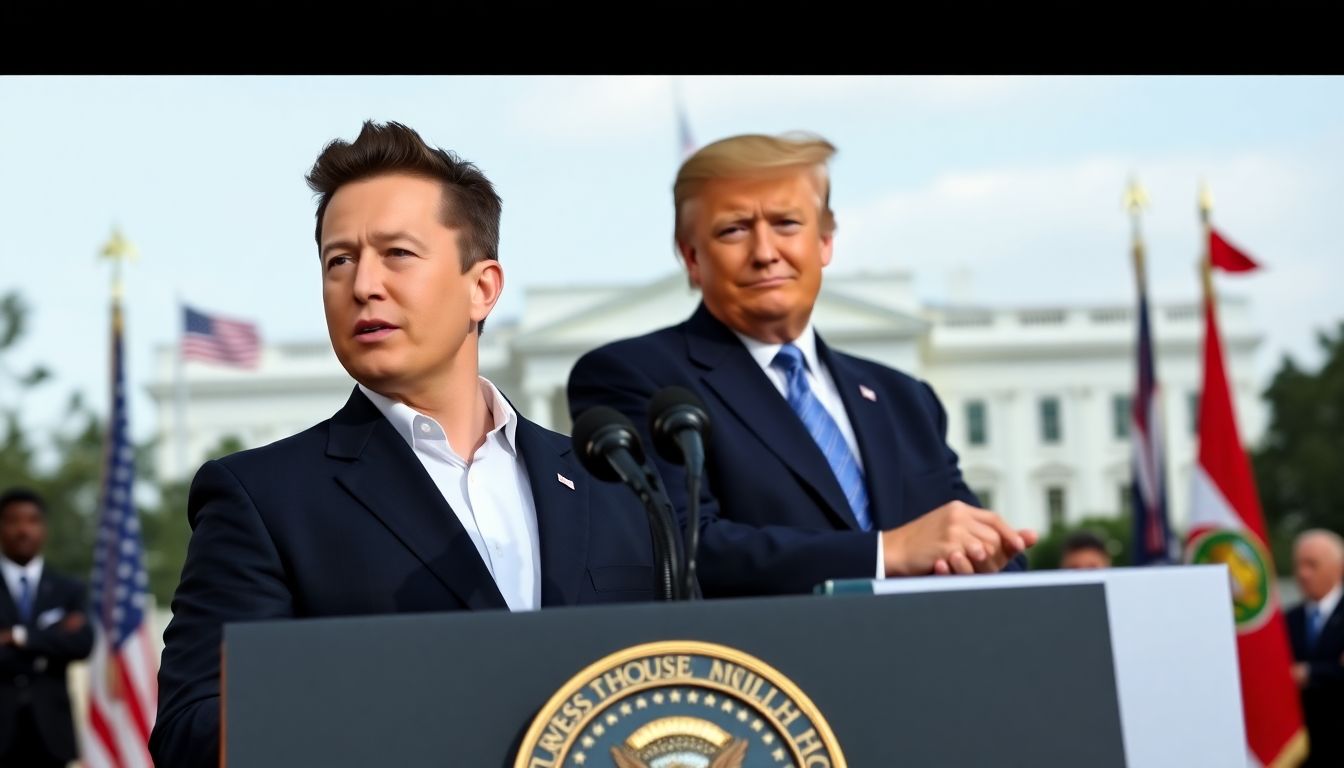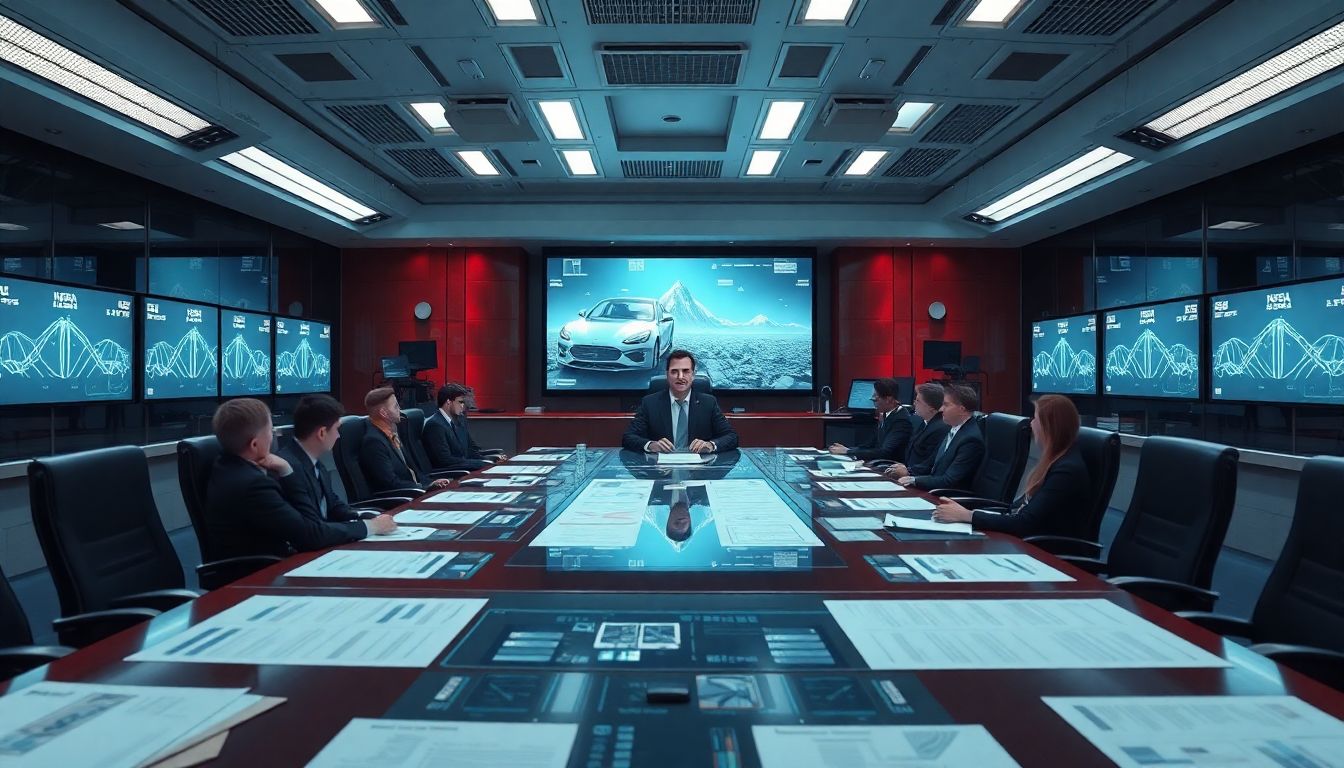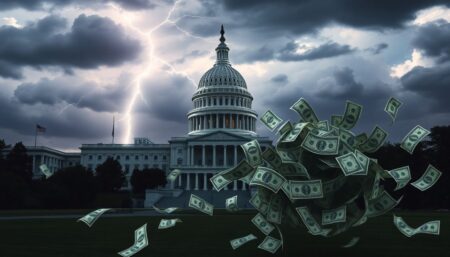Elon Musk, the enigmatic billionaire and founder of companies such as Tesla, SpaceX, and Twitter, has always been a figure of immense public interest and debate. However, his influence has recently reached new heights, extending far beyond his business endeavors into the realm of politics.
From tweeting about Mars to whispering in Donald Trump’s ear, Elon Musk is reshaping politics and power in America.
Imagine a scene straight out of a science fiction epic: Elon Musk, the serial entrepreneur and innovator, stands at the helm of a futuristic control center that seems to be both a physical manifestation and a metaphor for his multifaceted mind. The room is a dizzying array of screens, each a portal into the different worlds Musk inhabits. There are live Twitter feeds scrolling at a frenetic pace, reflecting the chaos and immediacy of social media, where a single tweet from Musk can send stocks soaring or spark global debates.
Surrounding him are screens displaying sleek electric car designs, a testament to his pioneering role in the green energy revolution. Tesla’s latest models rotate in 3D, showcasing their aerodynamic forms and cutting-edge technology. Behind him, rockets launch in a spectacular blaze of glory, representing SpaceX’s mission to make life multiplanetary. The control center hums with an almost tangible energy, a blend of chaos and innovation, with Musk at the epicenter, steering the ship.
Interspersed among these displays are snapshots of political figures, some mid-speech, others in closed-door meetings. This is a nod to Musk’s growing influence in the political sphere, his ideas and innovations no longer confined to the realms of technology and business, but stretching into policy and governance. The control center is a microcosm of Musk’s world—a whirlwind of chaos, innovation, and influence, with him at the controls, navigating the future.

A Day on Elon Musk’s Twitter
Step into the digital arena of Elon Musk’s social media platform, and you’ll find a whirlwind of chaos and mesmerizing spectacle that unfolds daily. Musk, the tech billionaire known for his innovative ventures, uses this platform as a stage for a mix of political clashes, business promotions, and controversial views on global issues. His timeline is a relentless stream of content that keeps his millions of followers engaged and often on the edge of their seats, wondering what he’ll tweet next.
Musk’s political clashes are a frequent occurrence, sparking intense debates and drawing global attention. He doesn’t shy away from confrontations, whether it’s challenging government policies or sparring with political figures. Recent instances include:
- His public disagreement with the Securities and Exchange Commission,
- His critique of the Biden administration’s policies,
- And his back-and-forth with Senator Elizabeth Warren over tax policies.
These exchanges, often sharp and unfiltered, reflect his unyielding stance on issues he’s passionate about, further fueling his influence.
Business promotions are another key aspect of Musk’s social media presence. He cleverly leverages his platform to generate buzz around his ventures, such as:
- SpaceX launches and achievements,
- Updates on Tesla‘s latest innovations,
- Progress reports on The Boring Company, and
- His ambitious plans for Neuralink.
With each tweet, he builds anticipation and excitement, drawing more attention to his companies and projects.
But it’s not just business and politics that make Musk’s social media presence so captivating; it’s also his controversial views on global issues. He’s weighed in on topics like:
- Artificial Intelligence (AI) and its potential threats,
- The future of cryptocurrency,
- And even the existence of extraterrestrial life.
His opinions, though often controversial, spark conversations that ripple through the tech industry and beyond, solidifying his status as a thought leader and influencer. His use of social media isn’t just about broadcasting his views; it’s about engaging with his audience, shaping narratives, and ultimately, influencing the world according to his vision.

The Unelected President
Elon Musk, the charismatic CEO of SpaceX and Tesla, has transcended his role as a tech mogul to become a significant political influencer in the United States. His political clout is unprecedented for a businessman, often eclipsing that of elected officials. Musk’s influence is evident in his ability to shape public policy, from space exploration to electric vehicles, and in his sway over political discourse, with his Twitter presence often sparking national conversations.
Musk’s relationship with former President Donald Trump has been both cooperative and contentious. During Trump’s presidency, Musk served on several advisory councils, including the President’s Strategic and Policy Forum. However, their relationship soured over policy disagreements, notably Trump’s decision to withdraw from the Paris climate accord, which Musk publicly criticized. Despite this, Musk’s influence persisted, demonstrating his unique political power.
However, Musk’s political influence has not been without criticism. Here are a few key points of contention:
- Lack of democratic mandate: Musk’s power is not derived from any form of public election, leading some to question his accountability.
- Policy influence: Critics argue that Musk’s influence over policy, particularly his lobbying for subsidies for his companies, represents a form of corporate welfare.
- Public statements: Musk’s often controversial public statements, particularly on Twitter, have drawn significant backlash.
Musk’s political journey raises a compelling question: how did a tech CEO become such a pivotal figure in the political landscape without a democratic mandate? Several factors contribute to this phenomenon. Firstly, Musk’s success and innovation in the tech industry have given him a considerable platform. Secondly, his wealth allows him to influence policy through lobbying and political donations. Lastly, his active engagement on social media platforms, particularly Twitter, has given him a direct line to the public and politicians alike, amplifying his voice in political conversations.

Musk’s Business Model: Chaos and Redemption
Elon Musk, the serial entrepreneur behind titans like SpaceX and Tesla, has long been known for his unconventional approach to business. Central to his playbook is the use of chaos as a tool for innovation and restructuring. Musk believes that controlled chaos can stimulate creativity, challenge stagnant processes, and fuel innovation. By shaking up established systems, he aims to expose inefficiencies and pave the way for transformative change. This strategy has been evident in his past endeavors, from revolutionizing the electric vehicle market with Tesla to disrupting the aerospace industry with SpaceX.
Musk’s takeover of Twitter provides a vivid example of his chaos-driven approach. Within weeks of acquiring the social media giant, he initiated mass layoffs, overhauled policies, and even toyed with controversial features like Twitter Blue’s verification system. While critics argue that these abrupt changes led to instability, Musk’s supporters contend that they were necessary to jolt the company out of its comfort zone and drive innovation. Similarly, at companies like Tesla and SpaceX, Musk has employed aggressive timelines, public pressures, and internal competition to stimulate rapid development and iteration.
Recently, Musk’s role has expanded beyond the corporate sphere and into the political arena, with his involvement in the U.S. administration. While his exact role remains nebulous, speculations suggest he could be advising on matters related to technology, innovation, and regulatory frameworks. Given his business playbook, it’s reasonable to expect that Musk might employ similar chaos-driven strategies in his political capacities. This could manifest in various ways, such as:
- Challenging entrenched bureaucratic processes to streamline governance
- Promoting disruptive technologies to stimulate economic growth
- Shaking up regulatory environments to foster innovation
However, the potential implications of Musk’s approach in politics and governance are up for debate. On one hand, his strategies could invigorate stagnant political systems, inspire innovative problem-solving, and drive progress in areas like tech regulation and infrastructure development. Conversely, critics warn that his chaotic approach might lead to policy instability, administrative confusion, and a disrupted political landscape. Furthermore, Musk’s tendency to circumvent traditional norms and expectations raises concerns about accountability and oversight. As Musk’s political influence grows, only time will tell how his unique brand of chaos-driven innovation will translate to governance and shape the future of U.S. politics.

The Alliance with Trump and Future Uncertainty
The alliance between Elon Musk and Donald Trump has sparked a mix of intrigue and uncertainty, leaving many to wonder what the future holds for this unlikely pairing. Musk, known for his innovative spirit and disruptive technologies, has been tapped to serve on Trump’s Strategic and Policy Forum, a move that could significantly influence the direction of government spending, national debt, and political decisions. With Musk’s futuristic vision and Trump’s business acumen, the potential for bold initiatives is high, but so are the stakes.
One of the most anticipated impacts of Musk’s involvement is his potential influence on government spending, particularly in areas such as infrastructure and space exploration. Musk’s companies, like SpaceX and The Boring Company, are already pioneering advancements in these sectors. However, Musk’s ambitious projects often require substantial investment, which could lead to shifts in federal funding priorities. This raises key questions: Will Musk’s influence drive innovation and economic growth, or will it strain the national debt further? Only time will tell.
Musk’s new role also comes with a set of challenges that could complicate his alliance with Trump. Here are a few hurdles he might face:
- Political Navigation: Musk will need to navigate the complex political landscape in Washington, which is vastly different from the tech and business worlds he’s used to.
- Ideological Differences: Despite their shared business background, Musk and Trump have differing views on issues like climate change and immigration, which could create friction.
- Public Scrutiny: Musk’s close ties to Trump will subject him to increased public scrutiny, which could impact his personal and corporate brands.
The ripple effects of Musk’s alliance with Trump extend beyond the United States, reaching the global community. His influence on US policy could impact international collaborations, trade agreements, and environmental policies. For instance, Musk’s stance on climate change and sustainable energy could shape US policies, which in turn could influence global environmental efforts. Moreover, his advocacy for space exploration and colonization could redefine international space policies. The world is watching, and the actions taken by this duo could set the stage for a new era of political and technological evolution.









